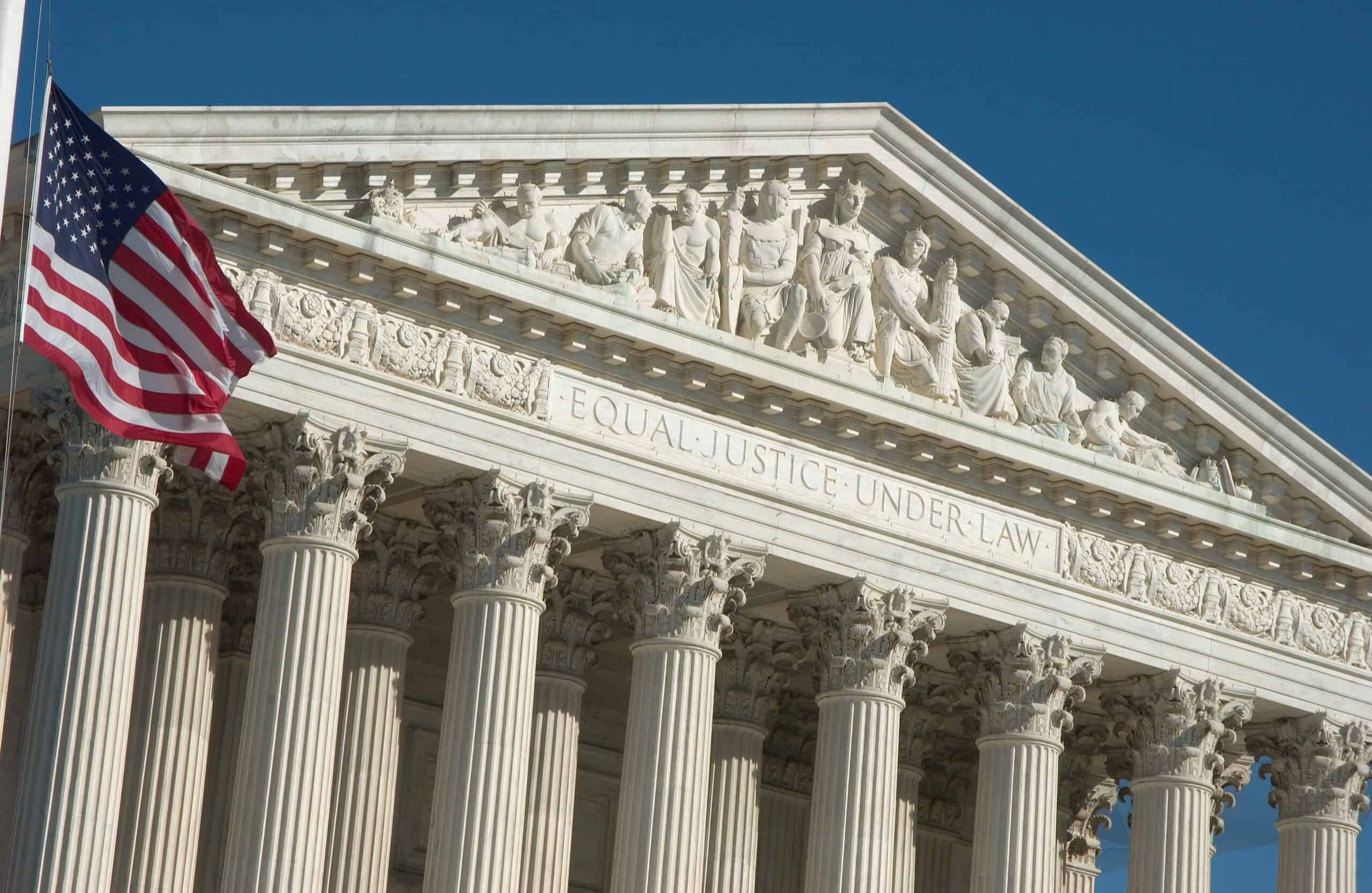Trump Tariffs Overturned By Supreme Court; $175B Refund Dispute Looms
The Supreme Court’s decision to strike down Trump’s so-called emergency tariffs doesn’t end a legal fight — it opens another that could put as much as $175 billion in refunds to companies on the line.
In a 6–3 ruling Friday, the US Supreme Court rejected President Donald Trump’s use of the International Emergency Economic Powers Act (IEEPA) to impose sweeping duties. How the government should handle the billions already collected from importers is still not clear.
The US Court of International Trade (USCIT) now faces the task of determining whether — and how — to unwind months of tariff collections that experts say could total roughly $175 billion.
Markets are now parsing the economic fallout. Olu Sonola, head of US economics at Fitch Ratings, called the ruling “Liberation Day 2.0 — arguably the first one with tangible upside for US consumers and corporate profitability.” More than 60% of the 2025 tariffs effectively vanish, he explained. That cuts the effective US tariff rate from about 13% to around 6% and removes more than $200 billion in expected annual collections.
The bigger story is heightened tensions within the US wherever business and politics intersect. After all, tariffs could reappear in revised form, Sonola adds. Indeed, Trump has already retaliated with a new 10% global tariff under different statutory authority.
“Layer on potential tariff refunds, and you introduce a messy operational and legal overhang that amplifies economic uncertainty,” Sonola says.
More Litigation To Come
Since Trump first announced the tariffs last April, hundreds of companies have clapped back with lawsuits.
Wholesale giant Costco, cosmetics firm Revlon and seafood packager Bumble Bee Foods are among the US-based companies demanding refunds. Kawasaki Motors and Yokohama Tire, both based in Japan, also filed complaints.
How those lawsuits will proceed are completely unknown, and that’s OK with Trump.
“At his press conference today Trump suggested that he will try to drag out the refund process by tying it up in court,” Phillip Magness, a senior fellow at the Independent Institute, says. “I suspect the USCIT will have very little patience for any delay tactics.” Also, the future of Trump’s trade deals, agreements struck with UK and Japan, for example, are also ambiguous.
“Most of these alleged deals have never been released in writing, so it is questionable whether they were even legally binding in the first place,” Magness says.
Magness also pointed to the differing opinions — especially Justice Neil Gorsuch’s — as a revealing glimpse into the Court’s evolving judicial philosophy.
Gorsuch’s statements leaned heavily on statutory interpretation and the “major questions doctrine,” which requires clear congressional authorization for policies of vast economic or political significance. He sharply criticized Justice Clarence Thomas’s dissent, arguing it would effectively grant the president sweeping authority under vague congressional delegations.
“Gorsuch showed that Thomas’s logic would effectively extend unlimited power to the president in cases of congressional delegation — a position that is not only constitutionally suspect, but at odds with Thomas’s own previous judicial philosophy. I believe that Thomas’s dissent greatly damaged his reputation for consistency as a conservative legal thinker in the ‘original intent’ camp,” Magness explains. “Gorsuch’s concurrence highlighted how Thomas’s position broke sharply from those principles by attempting to carve out an exception for Trump’s tariff agenda.”
‘Significant Consequences’
Justice Brett Kavanaugh, in dissent, warned that the federal government may be stuck holding the bag and required to refund billions of dollars to importers who paid the IEEPA tariffs, despite costs being already passed onto consumers.
Refunds, he continued, would have “significant consequences for the US Treasury.”
Certain industry groups don’t seem to mind, and are already pressing Customs and Border Protection to move quickly, likely through its Automated Commercial Environment system, to process claims.
The American Apparel & Footwear Association (AAFA), for example, welcomed the Court’s decision, saying it reaffirms that only Congress has constitutional authority to levy duties.
AAFA President and CEO Steve Lamar, in a prepared statement, called the ruling a validation of Article I powers and thanked the justices for their review of the case.
“CBP’s recently modernized, fully electronic refund process should help to expedite this effort,” he said.
